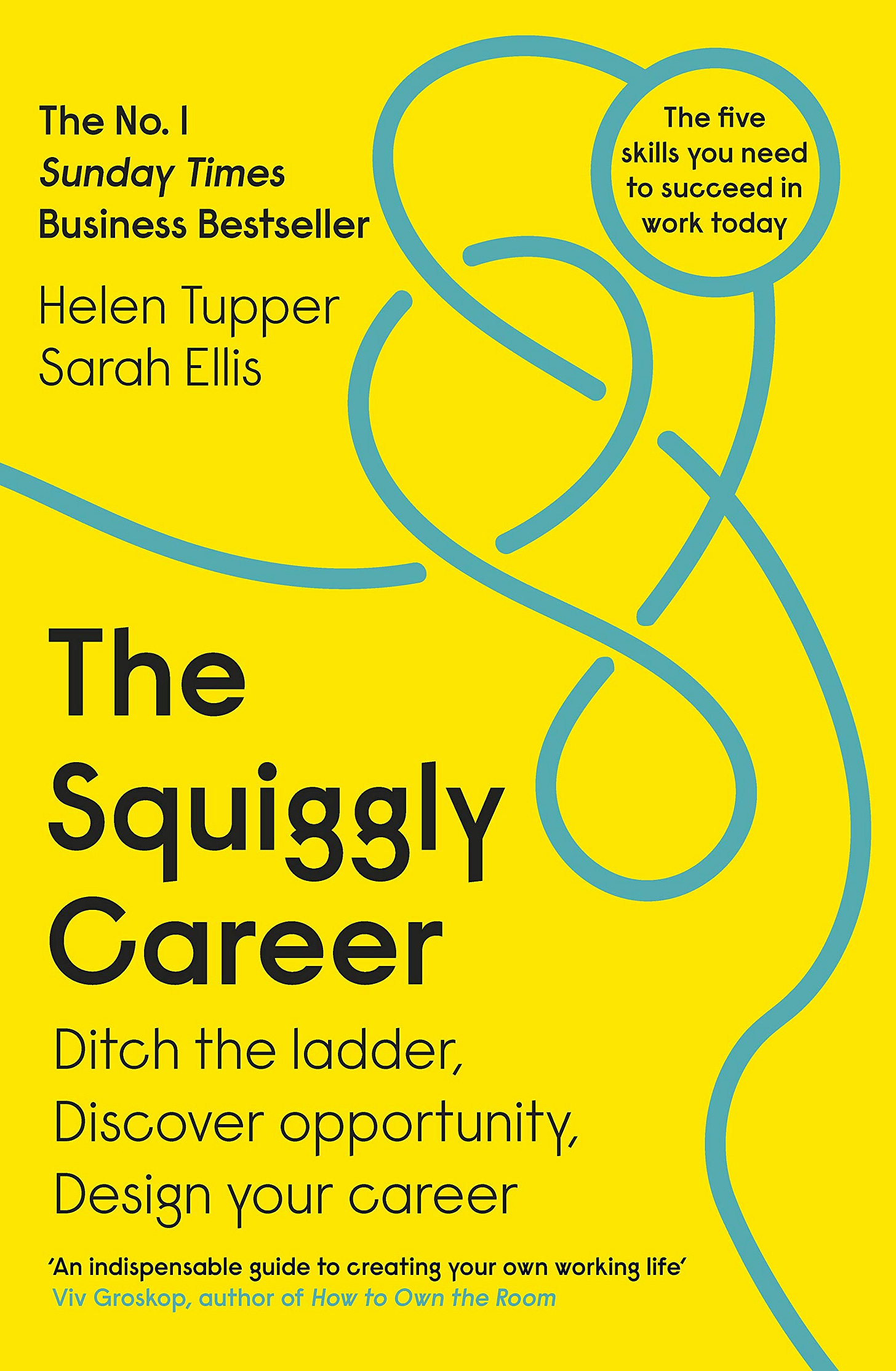Introduction
Welcome to The ContraMind Code.
The ContraMind Code provides you with a system of principles, signals, and ideas to aid you in your pursuit of excellence.
The Newsletter shares the source code, through quick snapshots, for a systems thinking approach to be the best in what you do.
The Code helps you reboot and reimagine your thinking by learning from the best and enables you to draw a blueprint on what it takes to get extraordinary things done.
The Squiggly Career
by Helen Tupper and Sarah Ellis
This book attempts to answer the question many people ask themselves: “What is going on with my career?”
It concludes that today’s career plans are still designed and applied by people like how they were done 100 years ago, just as when industrialisation began to play a more dominant role in society.
The common help belief is to climb the ladder, which is the root cause of the problem.
In this age of technology, the authors argue that careers are not a straight line. They talk about the importance of super-strength (one vital expertise area that individuals have to develop), Values, Confidence (in having belief in yourself), Networking and Future Possibilities as the necessary five levers to a successful career in the future.
Bringing Interdisciplinary Thinking to Project Management
with Dr. Ashwin Mahalingam
Dr. Ashwin Mahalingam is a Professor in the Department of Civil Engineering at IIT Chennai. Ashwin earned his Bachelor’s Degree from IIT Madras and holds a Master’s Degree and PhD from Stanford University, all in Civil Engineering.
Ashwin talks to us about complex challenges associated with Mega Projects, six typical causes of cost overrun in massive Infrastructure projects, the importance of design thinking, entrepreneurship, challenges and success secrets of Metro Projects in India like the Chennai Metro Project, Nagpur Metro Project etc.
Listen to the full episode on:
How to Speak
by Prof. Patrick Winston (MIT)
Patrick Winston's How to Speak is a course offered at MIT, and here, he teaches you a few heuristics to improve your speaking ability in critical situations. He covers concepts like Rules of Engagement, How to Start, Using tools like Boards, Props etc., the art of informing and persuading while speaking and finally, how to stop.
How We Get Into a Career Crisis
There are many people at different stages of their careers who have a few common questions or feelings that they are a little lost in their jobs; that they have lost out on their career when they compare themselves with their friends or colleagues with whom they had worked; that they are not sure where their career is taking them. It is more pronounced when people reach the mid-stage or late-stage of their careers.
You should ask yourself and answer one question: “What is the one skill I am so good at, nobody can compete with me until I die?”
Organisations tend to make you outdated as you grow. When you look at your pay, you must break it into:
Pay for what you do
Pay for what you get others to do
Here’s how your typical pay approximately gets broken as you progress in your career:
By the time you get to the mid or late stage of your career, you have no skills left but to manage people.
The critical question you have to ask yourself every time, at any stage of your work experience, “What will I get paid for what I can do, which I don’t have to depend on others for?”
Always through your entire career, invest in learning, and keep doing side projects that will keep you in touch with your core skills and keeps you hands-on. Pick projects in your organisation that you can do independently. Dump the Moving-up the Ladder = Growth worldview.
Some of the lessons we learnt from this week’s mission:
Careers are not straightforward, linear journeys anymore. You have to be ready to play a ‘Snakes and Ladders’-style game with your career to stay relevant.
Interdisciplinary thinking is critical even in large engineering and project management-intensive mega projects. You have to learn the art of marrying the ‘rational’ with the ‘irrational’ when managing projects.
There is a science to the art of speaking. Learn and practice it early in life. It is critical to remember that it is as crucial for you as your technical skills.
A career plan is what you make of it. Nobody can draw it up for you.











